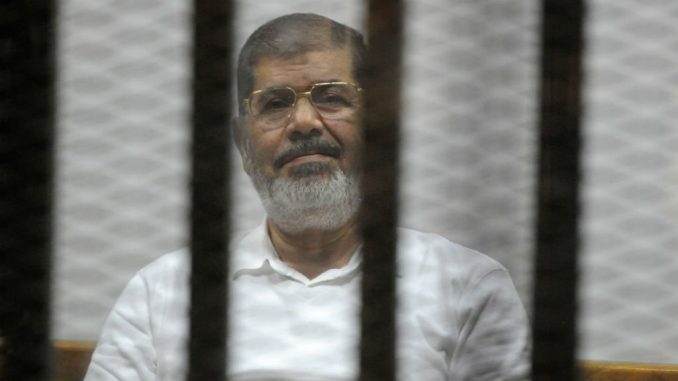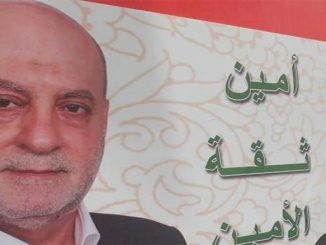
The UK Detention Review Panel (DRP) has issued its official report on the detention conditions of Dr. Mohamed Morsi, Egypt’s first democratically elected president who was overthrown by the military in 2013.
The UK Detention Review Panel (DRP) is a Panel of British Parliamentarians, who are mandated to Review the detention conditions of former President Mohamed Morsi. The Panel is chaired by former Foreign Affairs Select Committee Chair, Crispin Blunt MP and its members include former Minister of State for Justice, Lord Edward Faulks QC and Health and Social Care Committee member Dr Paul Williams MP. Dr Tim Moloney QC and Sam Jacobs of Doughty Street Chambers are Counsel to the DRP and Tayab Ali of ITN Solicitors is the Legal Secretariat.
Dr Mohamed Morsi was Egypt’s first democratically elected civilian President, serving as President of Egypt, from 30th June 2012 to 3rd July 2013. He was removed from power by General Abdel Fatah Al‐ Sisi, during a military coup d’état1 in July 2013. He has been in detention since that time.
The DRP considered newly obtained and open source evidence as part of their Review into the detention conditions of Dr Morsi.
DRP Findings
The Detention Review Panel (DRP) made the following findings in the report it published on its website:
– Dr Morsi is no ordinary prisoner. He was the elected President of Egypt. We considered his detention in the context the treatment of members of the Muslim Brotherhood and the Freedom & Justice Party in Egypt. Every independent report that was considered, including reports from the US State Department and UK Home Office made reference to the particularly harsh treatment currently faced by members of the Muslim Brotherhood and Freedom & Justice Party. The Egyptian government has not given us any cause to think that Dr Morsi is being treated any better.
– The Tora prison complex, also known as the Scorpion Prison, has been very harshly condemned for its inability to treat prisoners in accordance with both Egyptian and international law.
– The DRP finds that the allegations made by Dr Morsi, directly in his own words, in his statement to the Court in November 2017, and the allegations made by Abdullah Morsi, appear to be consistent with the allegations recorded by the United Nations, the United States’ State Department, Human Rights Watch, Amnesty International, news reports and other human rights organisations about the treatment of prisoners in Egypt.
– Our findings are that the allegations made by Dr Morsi, on a balance of probabilities, are likely to be true. They are consistent with the findings of the general treatment of prisoners, in particular political prisoners, in Egypt.
– We accept in full the finding of Dr Paul Williams. We find that Mohammed Morsi is receiving inadequate medical care, particularly inadequate management of his diabetes and inadequate management of his liver disease. We accept the opinion that the consequence of this inadequate care is likely to be rapid deterioration of his long‐term conditions, which is likely to lead to premature death.
– The DRP finds that on a balance of probabilities the detention of President Morsi is below the standard expected by international standards for prisoners, and would constitute cruel, inhuman and degrading treatment. We also find that the detention could meet the threshold for torture in accordance Egyptian and International law.
– The DRP finds that culpability for torture rests not only with the direct perpetrators but those who are responsible for or acquiesce in it. We find that the conditions of Dr Morsi’s detention would be of such continuing interest to the whole chain of command that the current President could, in principle, be responsible for the crime of torture, which is a crime of universal jurisdiction.
– We fear that if Dr Morsi is not provided with urgent medical assistance, the damage to his health may be permanent and possibly terminal. The failure to provide Dr Morsi with adequate medical treatment is a breach of Egyptian Law and the Mandela Rules.
– The panel are deeply concerned about the conditions and detention of Dr Morsi and invite the Egyptian government to allow the DRP, or any other reputable independent body, to conduct a visit.
Press Release
The DRP issued a press release this Wednesday morning which read:
Three UK parliamentarians release findings
into detention conditions of deposed Egyptian President Mohamed Morsi
MARCH 28TH, 2018
London – Three UK parliamentarians who formed an Independent Detention Review Panel (DRP) into the detention conditions of deposed Egyptian President Dr Mohamed Morsi, have today released their findings.
The DRP have concluded that Dr Morsi is being kept in conditions which fail to meet international standards known as the “Mandela Rules”. Dr Morsi, who has a history of ill-health including Diabetes, liver and kidney disease, is not receiving the adequate medical care required. This could result in his premature death.
The panel have also highlighted that Dr Morsi is being kept in solitary confinement for 23 hours a day, with one hour for him to exercise alone. According to the UN special rapporteur on torture and other cruel, inhuman or degrading treatment or punishment, in certain cases solitary confinement can be classified as torture.
The report also concludes that given Dr Morsi is no ordinary prisoner, the conditions of his detention should be of concern to the entire Egyptian chain of command, up to and including the President. His confinement could meet the threshold for torture in accordance with Egyptian and international law. Torture is a crime which can be prosecuted in many countries, under the principles of universal jurisdiction.
Speaking in Westminster at a presentation of the findings of the report, Chair of the panel, Mr Crispin Blunt MP said:
“Our conclusions are stark. On his health, the denial of basic medical treatment to which he is entitled could lead to his premature death. He has been denied proper access to his legal advisers and virtually any visits from his family. His solitary confinement has been severe enough to meet an international definition of torture. The whole overseeing chain of command up to the current President would have responsibility for this.
It is not too late to address these properly held concerns. We continue to hope for the Egyptian authorities to see this as an opportunity to recognise that the conditions in which Dr Morsi and many other prisoners are being kept, do not meet Egyptian and international standards and address them. It would make a good start to a new term of office for the President. We are open to discussing our conclusions with the Egyptian authorities, and to receiving any evidence they have so we can re-examine our conclusions on the basis of the fullest information.”
Upon receiving the conclusions from the review panel, Dr Morsi’s son Abdullah Morsi who is in Cairo said:
“We have known for a long time my father’s treatment does not meet international standards. Our fears and concerns have been confirmed by the findings of the Independent panel and our family is deeply troubled.
We thank the panel for the work they have undertaken in producing this report. We now hope that other international politicians, diplomats and lawyers will make the effort to look into the conditions of my father’s detention and produce their own reports and recommendations. We cannot stop fighting for him now. The international community must condemn his treatment and push the Egyptian Government to allow his family to visit, and for him to receive medical care. We do not want him to die in prison.”



